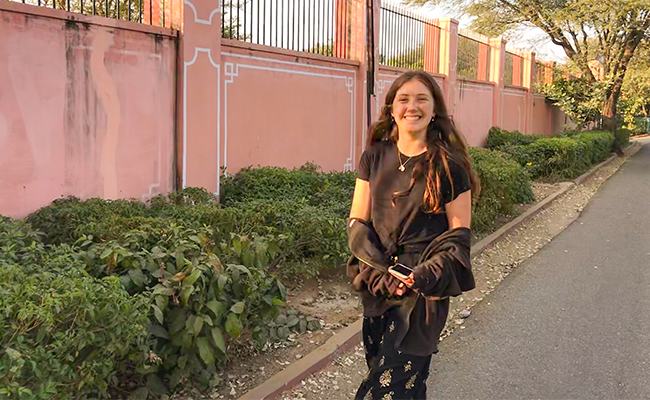
Research carried out by Master's of Population Health candidate, Jaimee Thomas, suggests the walkability of the environment a person lives in can improve their mental health.
Even just knowing you could walk around the area you in live in if you want to can improve your mental health, new research by a University of Otago master's candidate suggests.
Jaimee Thomas completed her Master of Public Health at the Ōtatahi Christchurch campus' Department of Population Health in 2022.
Nominated for the Richard Kammann Wellbeing Prize, her project 'Access to Active Transport and Self-Perceived Mental Health in Christchurch, New Zealand' was highly commended.
Thomas wanted to identify factors in the physical environment that contributed to good or bad mental wellbeing. Her focus was on active transportation infrastructure.
Her hypothesis was the more access a person had to active transportation infrastructure – cycleways, bus stops or the area a person lives in being quite walkable – the more likely they would use that infrastructure and have better mental health.
She says she then “took out the middleman: usage” and proposed that if person lived in an environment where it was feasible for them to use active transport, that in itself would benefit their mental health.
The project is important, she says, because after the earthquakes in Ōtautahi Christchurch, many people saw a decline in their mental health, so she wondered if there was something that could be done that would coincide with the rebuild and improve people's quality of life.
Developing a walkability index, using information from previous projects, she discovered the walkability of an environment made the biggest difference.
“So that's green spaces, pedestrian crossings, whether there's lots of crime in your area, whether it's considered safe, if there's shops around.”
Being highly commended for her work was a nice surprise.
“I had no idea that [her supervisor Angela Curl] had nominated me, and I had no idea what the award was.”
Thomas wrote her thesis while Aotearoa New Zealand was “in the thick of COVID”, a process which was challenging, particularly because her access to a required lab was limited.
“It was really, really cool to get the piece of work finished, for starters, and to then be recognized for it, almost a year later, it was a really, really nice feeling.”
She and her supervisor are working out which parts of her research will be published.
While she feels the challenges she faced throughout her project mean her results might not be strong enough to sway policy makers, she believes her work is a “step in the right direction” for future research.
Thomas is now working in Māori Health and Social Services doing health promotion in early childhood centres but will soon leave to take on the Kaiwhakapuawai role with Tamariki Ora nurses.
The Richard Kammann Wellbeing Award has been awarded to University of Otago students researching topics that improve wellbeing since 1986.
-Kōrero by internal communications advisor, Koren Allpress